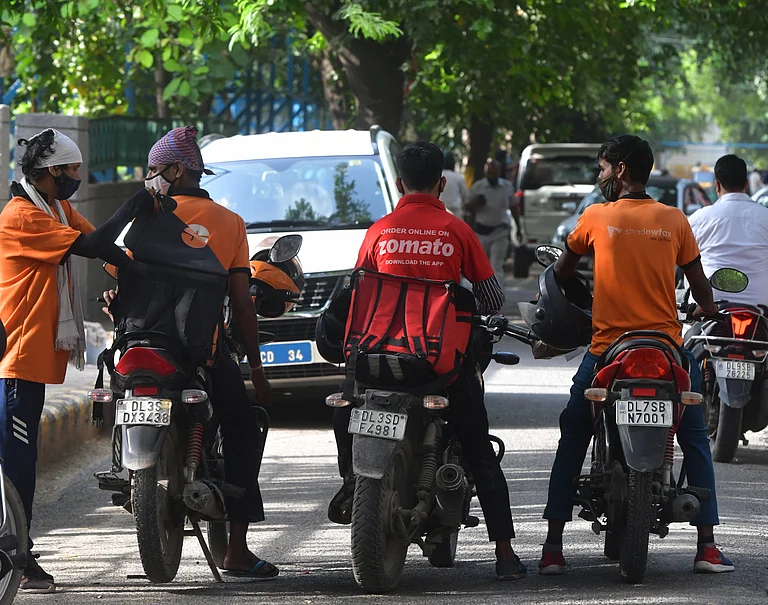The evolution of Artificial Intelligence (AI) and Machine Learning (ML) has revolutionized numerous sectors, but perhaps its most impactful transformation has been in the ridesharing industry. In India, companies like Uber and Ola are leveraging AI-driven solutions to enhance route optimization, predict traffic patterns, and ensure faster, more reliable commutes for millions of users. The seamless integration of these technologies has reshaped urban mobility, making ridesharing services smarter and more efficient than ever before.
As the ridesharing landscape continues to innovate, the demand for skilled professionals such as Machine Learning Engineers, AI research scientists and data scientists is soaring. Ridesharing companies worldwide are embracing AI not merely as a tool for enhancement but as a critical driver of growth and scalability. These intelligent systems empower ridesharing platforms to process vast amounts of data in real-time, ensuring seamless operations across millions of rides each day. This shift reflects a global trend where businesses are increasingly relying on AI to unlock new possibilities in urban mobility and beyond.
To explore AI's transformative power in ridesharing, we got in touch with Rachita Naik, a Machine Learning Engineer at Lyft, one of the leading rideshare companies in the US. Rachita’s journey from India to the US, and her pioneering work in AI, has not only revolutionized the way Lyft operates but also set a benchmark for the future of ridesharing technology. Rachita shared some unique insights into her academic and professional journey, her work, and how Indian talent is shaping the future of ridesharing technology.
Rachita's journey from India to the Silicon Valley has been nothing short of inspiring. With a foundation built at the National Institute of Technology Karnataka (NITK), one of India's premier engineering institutes, and later at Columbia University in New York, she has seamlessly transitioned into the US tech ecosystem, bringing a unique blend of technical expertise and global perspective to AI and its applications in transportation.
"AI’s potential to address complex challenges drew me to this field", Rachita shares. Her passion for AI was ignited during her academic years in India, where she developed AI-driven diagnostic tools for breast cancer classification and treatment planning, and diabetic retinopathy blindness detection. These projects weren’t just theoretical; they were deployed in a local hospital in Karnataka, significantly easing the workload of pathologists and enhancing diagnostic accuracy. "My aim has always been to use technology to create tangible impact.”
After receiving her Masters degree in Machine Learning at Columbia, where she broadened her perspective on how AI can be used to solve real-world problems, Rachita began working for Lyft. At Lyft, she has been able to scale her passion for AI to a broader audience, impacting millions of users through innovative solutions that enhance ride reliability, reduce wait times, and optimize driver-rider matching. "Ridesharing is such a dynamic field; you're dealing with thousands of data points that change every second—traffic conditions, driver locations, rider demand—and AI gives you the tools to make sense of all that complexity in real-time", Rachita explained.
One of the standout projects Rachita has led at Lyft involves enhancing the reliability of Estimated Time of Arrival (ETA) predictions—a crucial component of the ridesharing experience. "Accurate ETAs are pivotal in this industry; they can be the difference between a satisfied customer and a canceled ride. Our goal was to improve the accuracy of these predictions to make the rider experience as seamless as possible.", she recalled.
ETA predictions in ridesharing are inherently challenging due to the complexity of factors influencing travel time. Variables such as traffic, weather changes, driver preferences, road closures, and rider behavior all contribute to fluctuations in ETA accuracy. To address this challenge, Rachita and her team developed a sophisticated Machine Learning model that integrates historic and real time signals from multiple sources, including driver availability, traffic conditions, previous ride patterns, and dynamic supply and demand conditions.
Rachita emphasizes that it's not just about developing a Machine Learning pipeline; the model needs to be highly adaptable to maintain accuracy in a dynamic environment. To achieve this, her team designed the model to update itself with real-time data. They implemented continuous monitoring and retraining pipelines to ensure the model was responsive to sudden changes such as traffic build-ups or unforeseen events. This innovative approach led to a significant reduction in ride cancellations and is expected to contribute to an increase of over a million rides annually for Lyft.
"It’s incredibly rewarding to see how these improvements translate directly into real-world impact", Rachita shared. "Every optimization we make can potentially affect thousands if not millions of rides, and that's what drives me to push the boundaries of what AI can do." Rachita's work on enhancing ETA predictions holds particular promise for markets with dynamic environments, like Indian cities. The insights gained from her efforts at Lyft could play a crucial role in improving ridesharing efficiency in the rapidly evolving urban landscapes of India.
Rachita describes her everyday role at Lyft as a blend of technical problem-solving and strategic collaboration. She works closely with data scientists and product managers to build and refine Machine Learning models that enhance ridesharing processes, ensuring that these models adapt quickly to changes in rider demand and driver availability. This approach is crucial, not just in the US, but also for Indian rideshare markets where navigating dense urban environments and addressing city-specific challenges (like adapting to varied traffic patterns in cities such as Bengaluru or accounting for seasonal surges during festivals in Mumbai) demand flexible and resilient AI systems.
Beyond model accuracy, Rachita highlights the importance of the infrastructure that supports AI solutions: “Building tools to monitor models in production is a big part of my role”, she explained. “We need to ensure that our models perform consistently well and adapt quickly to new patterns by retraining or updating them as needed.” By reducing technical debt and keeping pace with evolving technologies, she helps maintain the agility needed for the product's ongoing evolution.
Beyond her technical responsibilities, Rachita is dedicated to fostering a culture of continuous learning and innovation at Lyft. She actively shares project insights with her team, documents key findings, and engages in industry conferences as both a speaker and a learner. “Staying connected to the latest advancements is crucial,” she said. “It’s not just about solving today’s problems but also anticipating tomorrow’s challenges and preparing for them.” This mindset is closely aligned with the rapid growth of ridesharing in India.
Looking ahead, Rachita's ambitions lie in pushing the limits of AI and Machine Learning in real-world applications. "In the short term, I’m focused on making ETA predictions even more reliable at Lyft by incorporating real-time signals and expanding our models to cover more diverse markets", she shared. She is also exploring advanced Deep Learning techniques and optimizing training methods to keep models adaptable in dynamic environments.
Rachita’s vision for the future includes leading teams that tackle complex challenges in urban mobility and creating more sustainable transportation systems. She’s particularly excited about the potential of Large Language Models (LLMs) to revolutionize customer service and analyze rider feedback at scale, blending AI with Natural Language Processing to deliver more personalized experiences. “Especially in India, I see a strong use case for LLMs to be used to overcome language barriers, given the diversity in the population. This can help distill and address feedback easily and make the product better.”
As AI continues to transform the ridesharing industry, innovations spearheaded by engineers like Rachita Naik will be pivotal in shaping the next generation of transportation solutions across the world. From AI-driven demand forecasting models that help allocate drivers more effectively during peak hours to advanced route optimization algorithms that dynamically adjust to real-time traffic conditions, the potential of AI in enhancing urban mobility is vast.
Rachita's work at Lyft not only demonstrates the critical role of Machine Learning in ridesharing, but also serves as an inspiration to aspiring engineers in India and around the world. Her journey is a testament to how the combination of strong technical skills, innovative thinking, and a passion for solving real-world problems can lead to groundbreaking advancements in technology. As the world looks to the future of AI-driven mobility solutions, Indian talent continues to be at the forefront of these innovations, bridging the gap between technological ambition and real-world impact.


























